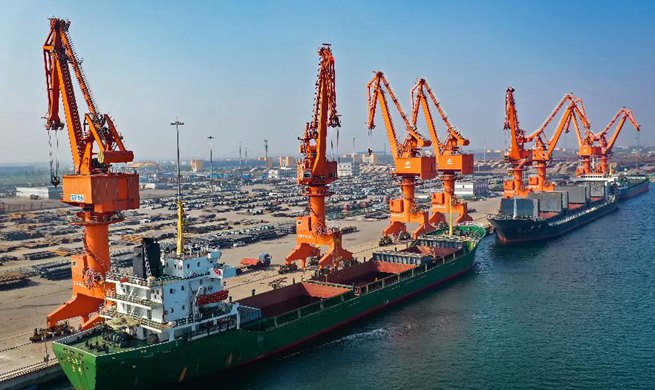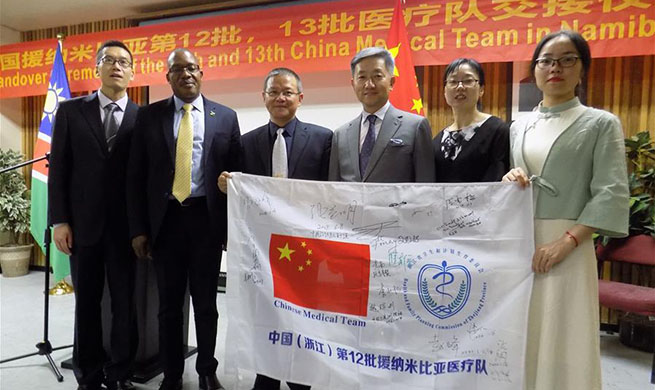FUZHOU, Jan. 17 (Xinhua) -- For Qiu Qingbo, a business official in the eastern Chinese city of Shishi, finding a parking spot near his office has become a daily challenge.
As the principal of the Market Procurement Trade Service Center in Shishi, Fujian Province, he doesn't seem to mind it at all.
"The parking lot is now jammed with cars of global suppliers and buyers. The parking difficulty indicates that the flow of goods and people has been facilitated by a market procurement trade trial scheme which was launched in Shishi in 2018," he said.
Qiu's statement was supported by local official statistics. In 2019, Shishi's export volume surged 107 percent to hit 33.5 billion yuan (around 4.9 billion U.S. dollars), contributing about two percentage points to the export growth of Fujian.
The trial scheme was first practiced in east China's Zhejiang Province in 2013 as the Chinese government aims to explore ways to unleash the foreign trade potential of medium-sized, small and micro businesses. Most of such enterprises in the past didn't have the capacity or qualifications to directly engage in transnational trade.
Lin Jinchang, director of the Shishi municipal bureau of commerce, said products of these enterprises typically boast low prices and fine quality, which make them popular and competitive in foreign markets, especially in countries along the Belt and Road.
Through establishing pilot markets, the Chinese government carried out a series of policy reforms to broaden the access of medium-sized, small and micro businesses to the international market and lay down favorable export regulations and rules for them.
The efforts have yielded notable results. More than 4,200 suppliers and 5,800 buyers from different countries have registered in the pilot market of Shishi, which is just 100 meters away from Qiu's office.
"Now, we can purchase all the goods we need here and clear the goods at the same place," said Wales Huang, a food purchaser from the Philippines. "Through the market procurement trade, we can save more than 10 percent of the cost in a single purchase."
In 2019, about 17.3 billion yuan worth of commodities were exported by medium-sized, small and micro enterprises in the pilot market, outnumbering Shishi's total export volume in 2018. More than 70 percent of these commodities were sold to countries along the Belt and Road, Qiu said.
Official data showed that China's private enterprises posted 13.48 trillion yuan in imports and exports in 2019, up 11.4 percent year on year and accounting for 42.7 percent of the country's total foreign trade.
Private firms are playing a larger part in foreign trade, overtaking foreign-funded enterprises to become the biggest contributor to China's foreign trade for the first time.
Most of the medium-sized, small and micro companies are private firms in China. "The progress we have achieved proves that small companies can serve as a 'big engine' driving foreign trade growth," Lin said.

















